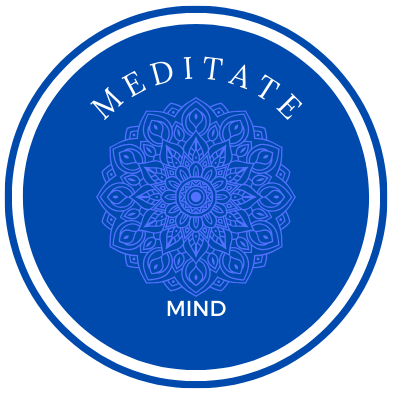
I’m here to help you with understanding why stress isn’t just a buzzword but a real concern. Stress affects your body and mind, sometimes in ways you might not be aware of. It can increase your heartbeat, cause tension in your muscles, and even trigger anxiety or depression. But stress isn’t all-powerful. You can combat it, and one effective weapon is meditation.
So what is meditation? It’s not about turning off your thoughts or reaching some mythical state of bliss. Rather, it’s about being present, observing your thoughts without judgment, and finding calm within the chaos. It’s like setting down a heavy bag you’ve been carrying without realizing how much it was weighing you down.
You’re going to find out about how extensive research has shown meditation’s positive effects on stress. Studies reveal that it can lower cortisol levels, which are directly linked to stress, improve sleep, and increase overall well-being.
But don’t worry too much about mastering complicated techniques right off the bat. In fact, one of the common misconceptions is that meditation is too difficult or requires some special skill. This is far from true, and I’m going to show you just how accessible it can be.
Choose something that resonates with you, and give it a try. Remember, this is about your health and creating moments of peace in your day. The best part? There are various types of meditation, so there’s bound to be one that fits your style and needs. Up next, we’ll explore these techniques and how they can seamlessly integrate into your life for effective stress relief.
Exploring Different Meditation Techniques for Stress Relief
You’re going to find out about various meditation strategies tailored to combat stress. Each style offers a unique approach to calming the mind and finding tranquility. Let’s get to know some popular methods you can try right away.
- Mindfulness Meditation encourages you to focus on the present moment. It’s about observing your thoughts, feelings, and sensations without judgment. This technique helps center your mind, reducing the overwhelm that stress can bring.
- Guided Visualization is another powerful tool. Here, you lean on your imagination, picturing a serene and calming place. It’s like taking a mini-vacation in your mind, one that can lead to profound relaxation and stress reduction.
- Mantra Meditation utilizes repetitive sounds or phrases to clear the mind. Whether it’s the classic ‘Om’ or a phrase that resonates with you personally, the repetition provides a mental anchor, freeing you from stressful thoughts.
- A Body Scan Meditation involves paying attention to different parts of your body in sequence, often starting at the feet and moving upwards. It helps to release tension and cultivate a state of deep relaxation and awareness.
I’ll also share tips on how to weave these practices into your daily life, even when you’re swamped. It’s all about making meditation accessible, so it becomes a stress-relieving ally, not another task on your to-do list.
Creating Your Personal Meditation Practice for Long-Term Benefits
Choosing the right meditation technique is just the first step in your journey to stress relief. Now, I’m going to help you establish your personal practice which is key for reaping long-term benefits.
You’ll want to start by determining the right time and place that fit into your life seamlessly. This might be a quiet corner in your home early in the morning, or perhaps a brief session at your desk during lunch. Remember, consistency is more crucial than the length of your meditation sessions.
In my opinion, setting realistic goals and expectations is a powerful way to kick-start your meditation habit without feeling overwhelmed. If you’re new to this, a five-minute session can be just as beneficial as a longer one. The idea is to create a foundation that you can build on as your practice grows.
Don’t worry too much about getting it perfect from the get-go. Meditation is a skill, and like any other skill, it takes practice. You’ll find that it’s often beneficial to combine meditation with other stress management techniques like regular exercise, journaling, or engaging in hobbies.
Tracking your progress might not sound like a big deal, but it can be incredibly motivating. Whether it’s jotting down a few notes on your phone or keeping a meditation journal, this simple act can help you appreciate the small victories along the way.
Finally, be prepared to adapt your meditation practices as your lifestyle and needs evolve. What works for you now might need tweaking down the road, and that’s perfectly okay. The beauty of meditation is its flexibility, so embrace the journey and adjust as needed.
